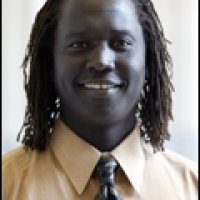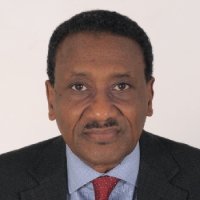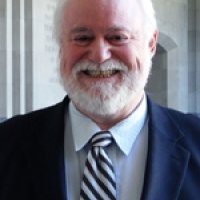Ground Truth Briefing: South Sudan’s Precarious Peace
The Takeaways
After decades of civil war and struggle, Sudan reached an agreement for an independence referendum for the people of southern Sudan. In 2011, the people of the future South Sudan voted overwhelming to form an independent country. The new country’s peace was short-lived, with disagreements over power sharing between leaders of the Sudan People’s Liberation Army turned politicians bubbling over into civil war in 2013. An August 2015 peace agreement paused the fighting between President Salva Kiir and First Vice President Riek Machar and ushered in a tentative peace, but violence broke out again last week on the eve of the fifth anniversary of independence.
On July 14th, the Wilson Center hosted a teleconference with Wilson Center fellows and alumni, and partners and experts on the situation in South Sudan. Mr. Steve McDonald, a Wilson Center Global Fellow, moderated the discussion between Dr. Jok Madut Jok, a former Wilson Center fellow, the co-founder of the Sudd Institute, and a professor at the University of Juba; Ambassador Nureldin Satti, a Wilson Center Global Fellow; and Dr. Augustino Mayai, Director of Research at the Sudd Institute in Juba, South Sudan; Ms. Akshaya Kumar, Deputy United Nations Director at Human Rights Watch; and Dr. Alex de Waal, Executive Director at the World Peace Foundation and Research Professor at Tufts University’s Fletcher School.
According to Dr. de Waal, the 2015 peace agreement set the clock back to just before the civil war, but didn’t address the fundamental issues that had originally caused conflict to break out, namely unresolved political rivalries for control of the country, the economic crisis—and resulting breakdown of the patronage system—and mounting factionalization and distrust within the army. Faced with those issues, many members of the president's inner circle appear comfortable entering into another armed conflict, and “what we have seen over the past week is an attempt to impose a military solution,” said de Waal.
Calling in from Juba, Dr. Mayai described the situation on the ground. Since violence began on July 7th, it has displaced more than 30,000 individuals, including Dr. Mayai himself. While the ceasefire is holding, whether it will continue to is an open question. He stated that it appears that leaders are probably not in full command of their forces.
After years spent struggling to gain independence, Dr. Jok argued, South Sudan was desperately in need of international assistance. Ultimately, he said, nothing will stop civil war short of a credible government backed by the international community. While acknowledging that the peace agreement was the best option available at the time, he noted the significant weaknesses in the peace agreement that have contributed to the current crisis. Yet getting the parties back to the negotiating table will take substantial international support and pressure.
Ambassador Satti said the current situation reinforces the importance of placing the interests of the people at the center of peace agreements. The current agreement was focused on power-sharing between elites, and did not place enough emphasis on peacebuilding and human security within South Sudan. Ambassador Satti also addressed the often-tense relationship between Sudan and South Sudan, which have in the past engaged in proxy warfare with each other. He said that the two countries need a roadmap to a strategic partnership that can address key issues including a commitment to helping each country end its internal conflicts and finding a viable agreement on sharing oil, water, and grazing lands. “Sudan and South Sudan, whether they like it or not, will continue to be partners in each other's misery or each other's welfare,” he said.
A year after the 2015 peace agreement went into effect, violence and human rights abuses have persisted, and the explosion of violence in the capital is part of a trend of rising violence in the country over the last several months, said Ms. Kumar. An ‘impunity gap’ has allowed combatants to carry out human rights abuses without fear of prosecution and to violate international law in targeting UN installations, including medical centers. “When South Sudanese soldiers, commanders, generals feel there is no accountability or justice, no specter of criminal prosecution, they continue to commit these abuses with impunity,” Kumar said.
An arms embargo has been on the table at the UN for months, but it has been stalled by U.S. reluctance, according to Ms. Kumar. An embargo would ground regime helicopters, which are currently serviced by Ukrainian (or Russian) private military contractors. Ambassador Satti cautioned that an embargo would need to be implemented and strongly policed to actually be impactful, and that it would be most effective as part of a larger package of international engagement.
Discussants also touched on international peacekeepers including UNMISS, the United Nations Mission in South Sudan. Dr. de Waal said that the situation in South Sudan was an exceptional case that merited international intervention, and suggested that the AU could play a role in stabilizing the country. Dr. Jok pointed out that UNMISS has a Chapter 7 mandate, which is a very robust mandate, but has still been unable to effectively engage despite it. Any escalation of troops would take months, which is too slow to handle the rapidly evolving situation, he said. Both Dr. Jok and Dr. Mayai cited the need for a homegrown approach. “While we need international assistance, we shouldn’t be holding our breath that it will come anytime soon,” said Dr. Jok.
Speakers


Professor, Syracuse University and Senior Researcher, The Sudd Institute

Retired UN Senior Official; Former Ambassador of Sudan to the United States, France, Portugal, Switzerland and the Vatican

Hosted By

Africa Program
The Africa Program works to address the most critical issues facing Africa and US-Africa relations, build mutually beneficial US-Africa relations, and enhance knowledge and understanding about Africa in the United States. The Program achieves its mission through in-depth research and analyses, public discussion, working groups, and briefings that bring together policymakers, practitioners, and subject matter experts to analyze and offer practical options for tackling key challenges in Africa and in US-Africa relations. Read more
